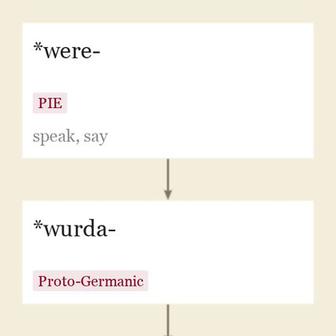watchword n.
also watch-word, c. 1400, "
Entries linking to watchword
Old English wæcce "
From c. 1200 as "
Also in Middle English, "
Military sense of "
The Hebrews divided the night into three watches, the Greeks usually into four (sometimes five), the Romans (followed by the Jews in New Testament times) into four. [OED]
On þis niht beð fowuer niht wecches: Biforen euen þe bilimpeð to children; Mid-niht ðe bilimpeð to frumberdlinges; hanecrau þe bilimpeð þowuene men; morgewile to alde men. [Trinity Homilies, c. 1200]

Old English word "
The meaning "
It is dangerous to leave written that which is badly written. A chance word, upon paper, may destroy the world. Watch carefully and erase, while the power is still yours, I say to myself, for all that is put down, once it escapes, may rot its way into a thousand minds, the corn become a black smut, and all libraries, of necessity, be burned to the ground as a consequence. [William Carlos Williams, "Paterson"]
updated on June 02, 2012